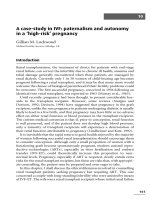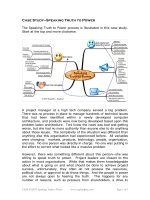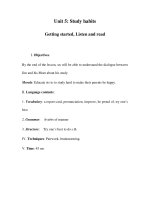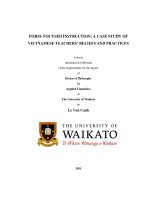CASE STUDY 2. BASKETBALL STAR
Bạn đang xem bản rút gọn của tài liệu. Xem và tải ngay bản đầy đủ của tài liệu tại đây (19.03 KB, 2 trang )
CASE STUDIES (Middle School – Page 26)
BASKETBALL STAR
Tyrone Martin is the middle school girls’ basketball coach. The middle school is located in a
suburb of a large metropolitan city, with students from mostly middle- to upper-middleclass
homes. Mr. Martin has been teaching English at the school for three years. He was the coach
for boys’ basketball at his last job and enjoyed the out-of-class experience with his students.
When he was asked by the principal to coach girls’ basketball this year while the usual coach
takes a leave of absence, he was excited about the opportunity. However, he has experienced
some difficulties getting the girls to work as a team.
As Jill and Sierra enter the gym for practice, he overhears them whispering about Darla.
Darla is very athletic but doesn’t seem to fit in with the “popular” group of girls. Darla is
already practicing and too far away to hear their conversation.
Mr. Martin overhears Jill saying, “If she thinks we are going to let her steal the show on the
basketball court, she can forget it.”
“The only reason she is any good is because her dad makes her play basketball every night
for like three hours!” adds Sierra. “He thinks Darla is going to be some big star! Too bad she
doesn’t have a mother around to show her how to act.”
Claudia, who appears to socialize with Darla, walks up behind the girls and overhears their
conversation. She states loudly, “Well, Sierra, you have had three mothers now with all your
dad’s divorces and remarriages, and you’re still not a lady. Maybe you should spend a little
more time with your father. Oh, that’s right, he’s too busy to pay attention to anything you’re
doing.”
Mr. Martin defuses the situation by announcing that the girls need to take their positions for
a scrimmage. He begins to think about Darla. Mr. Martin has noticed in the past that Darla
does not seem to have many friends. Claudia has repeatedly attempted to include Darla in
social events, but Darla doesn’t seem to respond with excitement, appreciation, or even a
simple “Thanks, but no thanks.” Rather, she seems to be uninterested in having friends or a
social life.
Mr. Martin decides to have a talk with Darla after practice to see if he can help determine
what might be the problem. He begins by asking Darla, “How do you like basketball this
year?”
Darla replies, “I like it. I just wish the other girls were more dedicated to the game. They
seem to think they are going to be movie stars or models.”
“Well, what would you like to be when you grow up?” asks Mr. Martin.
“My dad says I should be a basketball player because I have a lot of natural talent. That’s why
I don’t worry too much about those other girls and what they say about me. I know I am a
good athlete. And I am going to take business classes in high school so that I can manage my
own career and money when I make it big,” says Darla with a slight smile.
Mr. Martin pushes her on the issue a bit. “Have you ever considered doing anything else?”
Darla replies quickly, “No way! My dad really wants me to be a basketball player. That’s who I
am. It’s in my blood. Basketball is what makes me Darla. I am not good at many other things,
especially school and making friends off the basketball court. So I’m sure I’ll be a basketball
player.”
Mr. Martin ends the conversation, saying, “Well, Darla, I am glad you have such a clear vision
of your future, but don’t be afraid to change that vision. As people make their way through
high school and college, most change their minds about what and who they want to be in the
future. Just keep your options open, okay?”
“Okay, but I already know who I am and where I’m going,” says Darla.
As Mr. Martin begins to put away the equipment, he thinks about a boy at his last school.
Mark also didn’t have many friends or the skills to make friends. Rather, he had a short
temper and typically was in other students’ faces about something they had done to him or,
at least, what Mark thought they had done to him. He never thought his remarks or
retaliatory behaviors were as bad as those of the other kids. Mark and Darla had similar
backgrounds, in that their parents were divorced and each lived with their father. Mr. Martin
wonders how two children from such similar backgrounds could act so different yet have so
few friends.
QUESTIONS TO DISCUSS - page 45:
1. What parenting strategy is most likely used by Sierra’s dad? Darla’s dad?
2. How might the family structures of Sierra, Darla, and Mark influence their behavior?
3. Identify an example of a clique and a crowd in the case study. Would these be expected to be
formed during middle school? How might they change over the next several years?
4. What are the peer statuses of Jill, Sierra, Darla, and Mark? Give specific examples of their
behavior that indicate these statuses. How might their peer status affect their school
performance?
5. What type of aggression is used by Jill and Sierra? By Claudia? By Mark? Why might teachers
react differently to aggressive behaviors displayed by these students?









